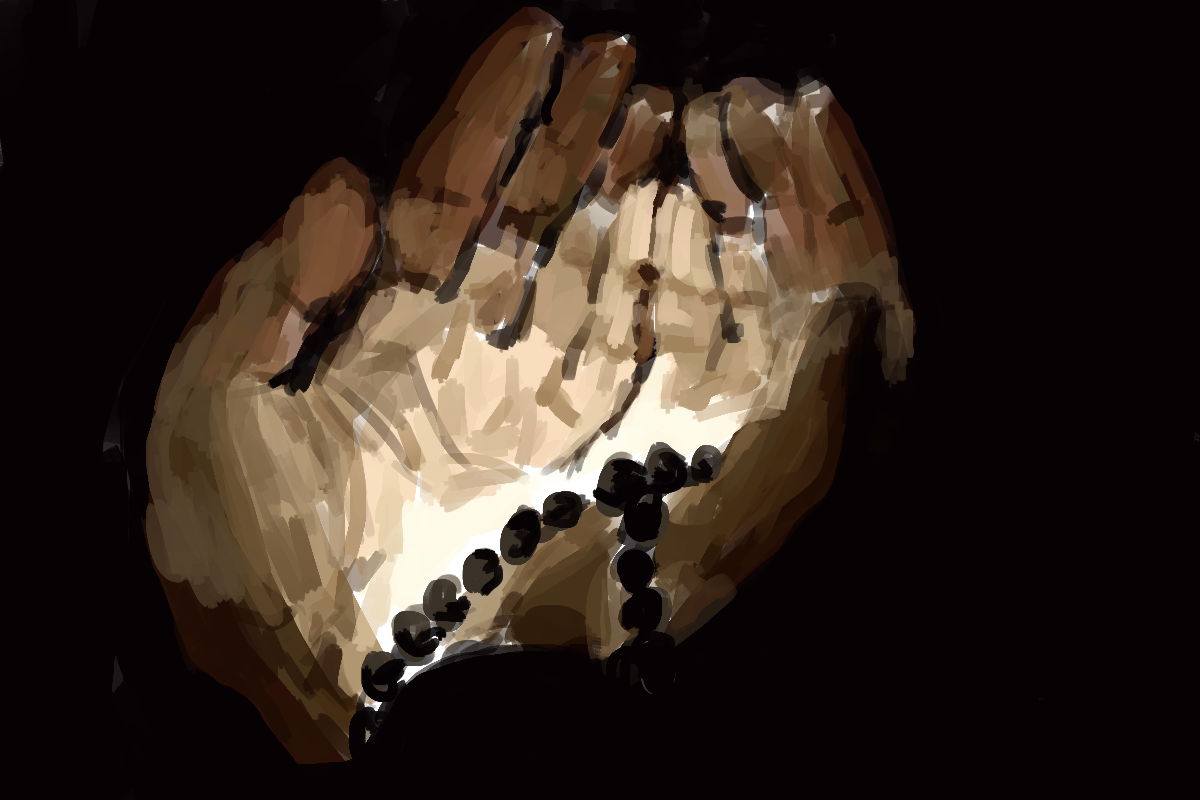My earliest memories of Ramadan are vivid, enveloping my mind in warmth and nostalgia. I can smell my mother’s cooking, I can hear the laughter around the dinner table, I can feel the bristles of the prayer rug between my feet. Together, these memories bring me a sense of community like none other.
Ramadan is regarded as a time of heightened spiritual devotion and reflection. By fasting from sunrise to sunset for 30 days, we increase our devotion to Allah by performing additional prayers to our daily five, reciting the Qur’an and performing acts of Zakat, a form of charity. By abstaining from daily privileges like food and water, that many people take for granted, one shows self-discipline and devotion to Allah.
The acts that are emphasized during the month — prayer, revelation of the Qur’an and charity — all work together to build community between Muslims. During Ramadan, communal iftars, praying sessions and charitable services are prevalent throughout Muslim communities. The mosque that my family and I frequent holds numerous events in celebration of the month, for example, it holds taraweeh prayers every night, which are voluntary prayers performed during the month. It also holds communal iftars, which is when we break fast at sunset, after our Maghrib evening prayer. With events like these, the kinship between Muslims extends far beyond spirituality and moves toward cultural celebration.
I have always looked forward to iftar, and not just because I can stuff myself after a long day of fasting. It is a time where I can sit down, take a break from my busy schedule and spend time with my family. Whether we sit and eat in silence or amicably talk between bites of flavorful food, I always find it comforting to just be present with the people I am closest to. Ramadan helps remind me that I am not alone in my faith.
During my first year at NYU, I observed Ramadan on my own for the first time, and it was harder than I thought it would be. Being away from home made the month feel emptier. I was still doing everything I have always done — regularly praying, closing my fast at sunrise and opening my fast at sunset — but it didn’t feel the same, because I was doing them by myself. I was grateful for the clarity that came with Ramadan, but I wished I was with the community I grew up with.
At the same time, I found that the new friends I had made at NYU — friends who did not celebrate Ramadan — created a comfortable environment where I could embrace my culture and religion. They would wait until sunset so we could eat dinner together. They even made sure to begin eating after I did out of respect for the month and myself. They would adhere to the times when I needed to pray, and my roommate never complained about my alarm going off at 3:30 a.m. for suhoor.
The small signs of respect they shared for the month and for my religion brought me back to the soothing environment I had at home. It also reminded me of why I chose to attend NYU in the first place — to be a part of a diverse and understanding community. While I wasn’t completely surrounded by Muslim peers, I still comfortably embraced my culture thanks to my support system.
Celebrating Ramadan at college broadened my idea of community beyond my familiar Muslim home. What was once an environment surrounded by people who shared my culture and beliefs has expanded into an inclusive space where I can find empathy, compassion and solidarity among individuals from diverse backgrounds and experiences. Ramadan transcends geographical boundaries, and is a time where understanding and kindness bridge the gap between all walks of life.
Ramadan is a time to savor the bonds of family and culture. As I look to the month ahead, I’m reminded that regardless of where we are, the spirit of Ramadan finds a home within each of us and with compassion and understanding, unites us as well.
Contact Noor Maahin at [email protected]

























































































































































